Are you ready to explore one of the UNESCO World Heritage sites in the Netherlands? Kinderdijk is a picturesque village that offers a unique glimpse into the country’s fascinating history of water management.
With its 19 historic windmills, this site demonstrates the Dutch people’s ingenious fight against flooding. As you visit Kinderdijk, you’ll discover the story behind its name and the significance of its water management system developed in the Middle Ages.
This guide will help you plan a successful day trip to Kinderdijk, covering transportation options, windmills to visit, and practical visitor information, ensuring a peaceful and educational travel experience.
Discovering Kinderdijk: A UNESCO World Heritage Site
As you step into the picturesque landscape of Kinderdijk, you’re not just visiting a place; you’re stepping into a piece of history that’s been recognized by UNESCO as a World Heritage Site. Kinderdijk is more than just a collection of windmills; it’s a testament to the ingenuity of the people who built this complex system to manage water, a crucial part of Dutch heritage.
The Significance of Kinderdijk
Kinderdijk’s significance extends beyond its picturesque landscape. It’s a site that showcases the Netherlands’ perpetual struggle against water and the innovative solutions they’ve developed over centuries. As a major travel destination, Kinderdijk attracts visitors interested in history and engineering.
The Story Behind the Name “Children’s Dike”
The name “Kinderdijk” translates to “Children’s Dike,” a name rooted in a legend from the St. Elizabeth flood of 1421. According to the legend, a wooden cradle was found floating on the waters with a cat keeping it balanced, and inside, a baby was sleeping peacefully. This miraculous survival story has become an integral part of local folklore, connecting the physical landscape with Dutch cultural heritage.
Today, Kinderdijk is one of the most historically significant sites to visit during your travels in the Netherlands, offering a unique glimpse into the country’s history and its people’s relationship with water.
How to Get to Kinderdijk
Getting to Kinderdijk is easier than you think, with multiple transportation options available. Whether you’re coming from Amsterdam, Rotterdam, or another location, you have several choices to suit your needs.
From Amsterdam
If you’re traveling from Amsterdam, you can rent a car and drive to Kinderdijk, which takes roughly 1 hour via the A4 and A15 highways. Alternatively, you can take a train to Rotterdam and then transfer to the waterbus ferry (Line 202) directly to Kinderdijk.
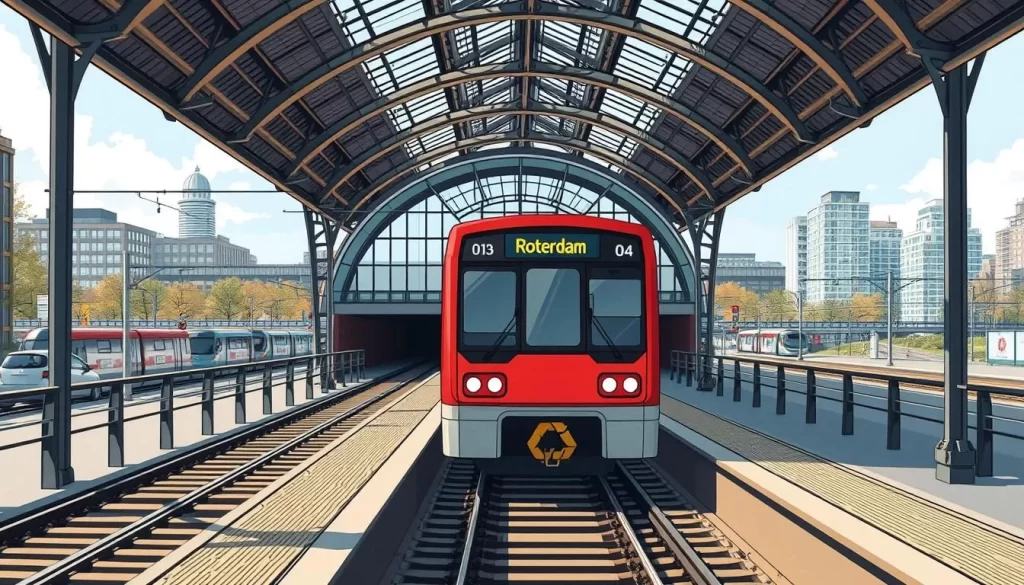
From Rotterdam
From Rotterdam, driving to Kinderdijk takes about 30 minutes via the A16 and N915. You can also use public transportation: take bus 90 from Rotterdam’s Zuidplein station to the Kinderdijk stop, or enjoy a scenic ride on the waterbus ferry (Line 202).
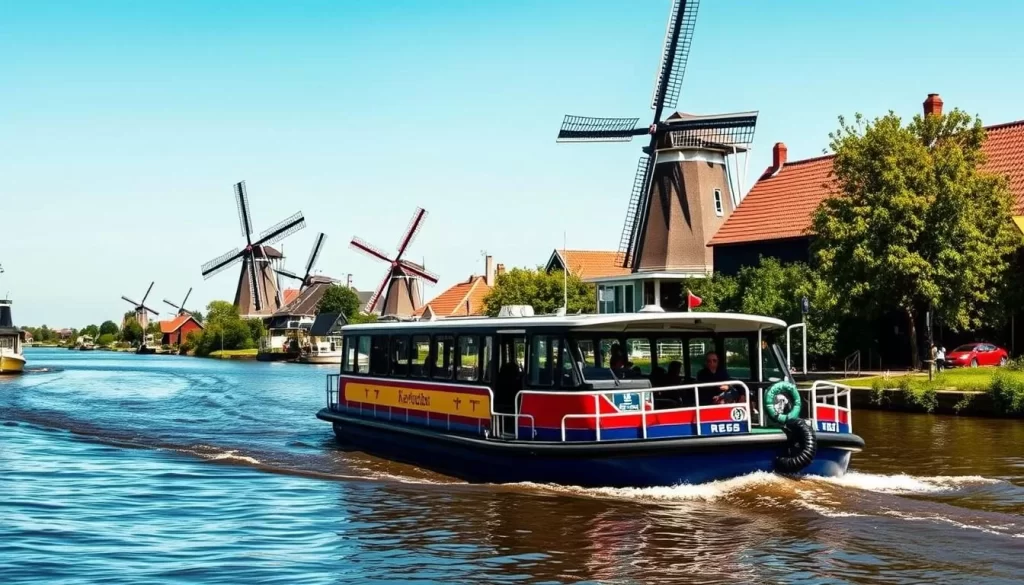
By Car and Public Transportation
Driving gives you the flexibility to visit Kinderdijk at your own pace, though be aware that parking can be limited during peak tourist season, so arriving early is advisable. For those on a budget or preferring not to drive, bus and waterbus services are available, with schedules that may vary seasonally and on weekends, making it a good idea to check transportation websites in advance for the latest information.
- From Amsterdam: Follow A4 and A15 highways.
- From Rotterdam: Take A16 and N915.
- Public transportation options include train and waterbus or bus 90 from Rotterdam.
Best Things to Do in Kinderdijk, Netherlands
The picturesque landscape of Kinderdijk invites travelers to explore its historic windmills, museums, and scenic waterways. As you plan your visit, you’ll find a variety of activities that showcase the region’s unique heritage and offer a memorable experience.
Explore the Historic Windmills
Visiting Kinderdijk is not complete without exploring its iconic windmills, a symbol of Dutch ingenuity and engineering. The windmills, listed as a UNESCO World Heritage Site, are a testament to the Netherlands’ rich history and its battle against water.
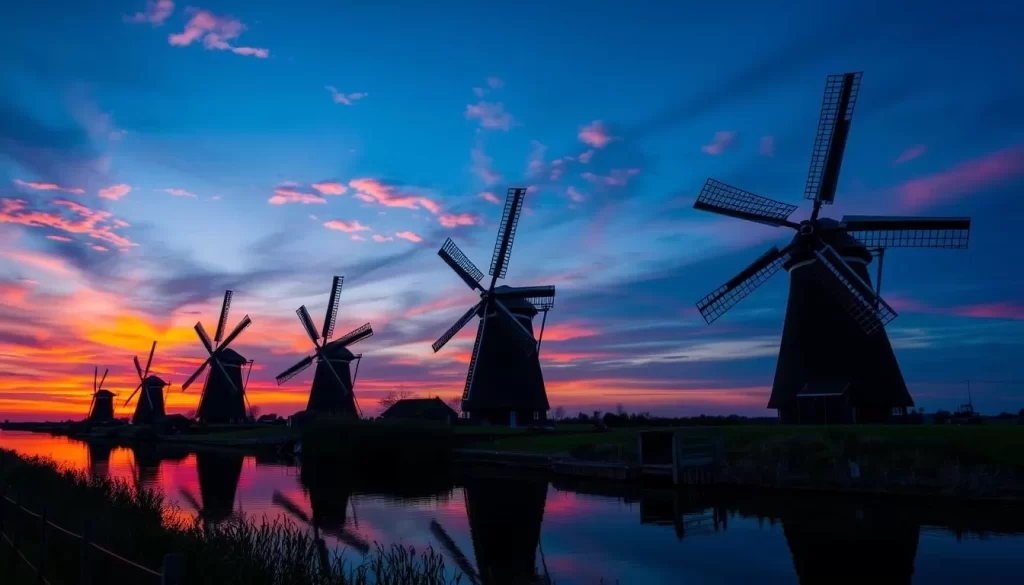
Visit the Museum Windmills
For a deeper understanding of the windmills’ significance, visit the Nederwaard and Blokweer Museum Mills. These museums offer insights into the history and operation of the windmills.
Nederwaard Museum Mill
The Nederwaard Museum Mill is one of the 19 windmills in Kinderdijk and provides a glimpse into the lives of the people who maintained these structures.
Blokweer Museum Mill
The Blokweer Museum Mill is another significant windmill that showcases the technology and craftsmanship of the past.
Take a Boat Tour Along the Canals
A boat tour along Kinderdijk’s canals offers a unique perspective on the windmills and the surrounding landscape. You’ll get to see the windmills from a different angle and enjoy the serene atmosphere of the area.
Rent a Bike and Cycle Through the Countryside
Renting a bike is one of the best ways to explore Kinderdijk and its surroundings. You can rent bicycles and go on an adventure through the gorgeous lowlands. Head to Café De Klok for a rental, or book a Kinderdijk Bike Tour, which leaves from Rotterdam. During a day trip, biking allows you to explore for miles with few other people around, experiencing peace and quiet combined with adventure.
- Renting a bike from Café De Klok (approximately $10 USD for the day) offers one of the most authentic Dutch experiences at Kinderdijk.
- Cycling paths extend beyond the main tourist area, giving you access to the beautiful surrounding countryside.
- A bike allows you to cover much more ground than walking, making it possible to explore the entire Kinderdijk area.
- The flat terrain of the Netherlands makes cycling accessible to visitors of all fitness levels.
- For those staying in Rotterdam, organized bike tours to Kinderdijk combine transportation from the city with guided cycling exploration of the windmill site and surrounding waterways.
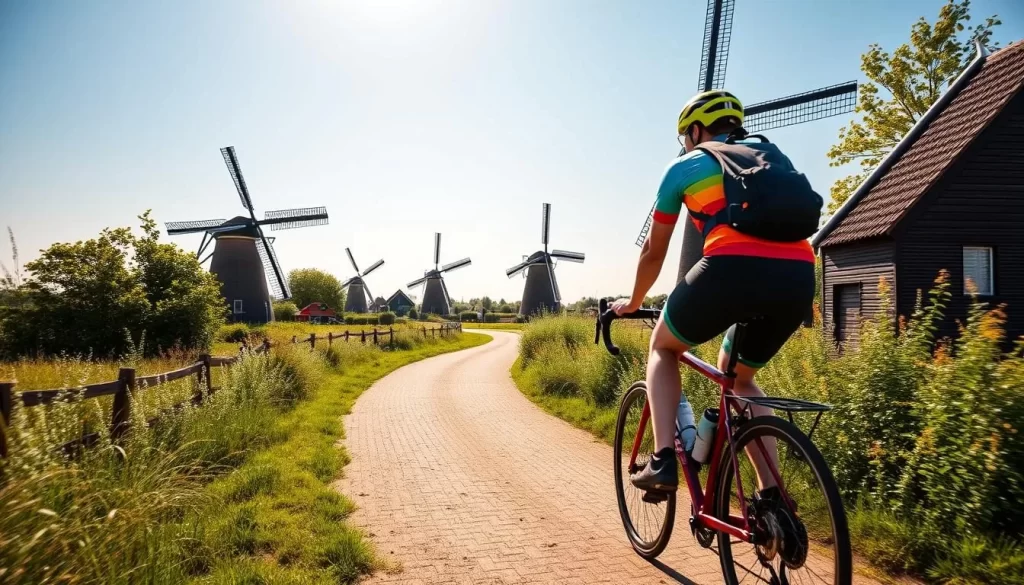
Practical Information for Visiting Kinderdijk
Kinderdijk, a UNESCO World Heritage Site, requires some practical knowledge to visit effectively. Ensuring a smooth and enjoyable trip involves understanding a few key aspects.
Tickets and Admission
To visit Kinderdijk, you don’t need to buy entrance tickets in advance for the windmills themselves, but some attractions and tours may require booking.
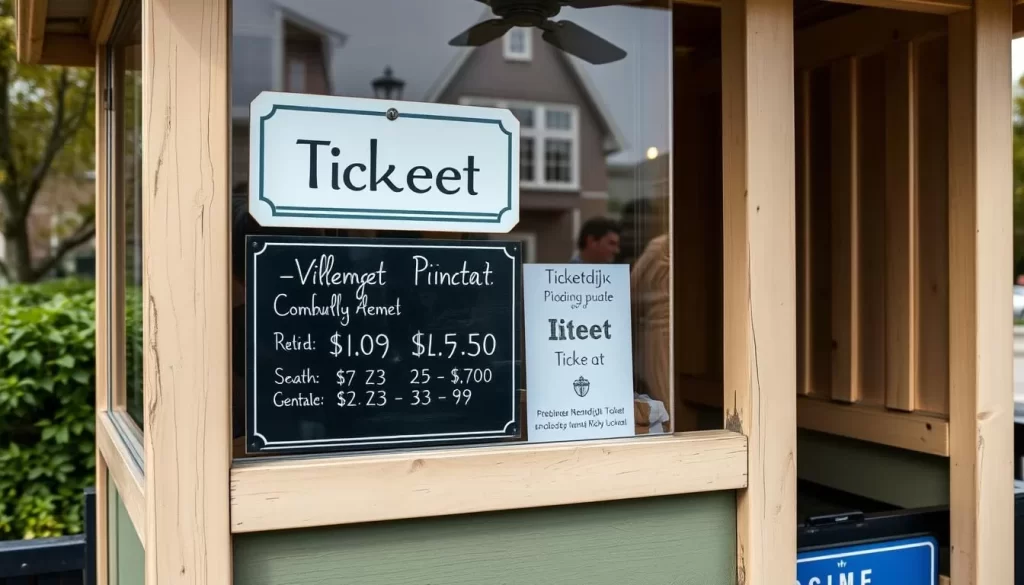
Best Time to Visit
The best time to visit Kinderdijk is during spring or early autumn when the weather is mild and there are fewer tourists than in the peak summer months. Summers are pretty mild, and winters are very cold.
Where to Eat
There are limited dining options within Kinderdijk itself, so it’s a good idea to grab a meal or snacks before you arrive. However, there are some cafes near the windmills where you can enjoy a bit to eat or drink.
What to Pack
Regardless of the season, it’s advisable to bring a rain jacket and wear comfy, closed-toe shoes. For a day trip, consider packing:
- Comfortable walking shoes essential for exploring Kinderdijk.
- A waterproof jacket or rain poncho advisable year-round.
- Sunscreen and a hat for summer visits.
- Warm layers, including gloves and a scarf, for winter visits.
- A camera with extra batteries to capture the photogenic views.
Travel insurance is also recommended in case anything goes wrong during your travel. A couple of hours is sufficient to explore the main attractions.
Making the Most of Your Day Trip to Kinderdijk
Making the most of your day trip to Kinderdijk requires a bit of preparation. To ensure a memorable experience, consider planning your itinerary and camera equipment in advance.
Suggested Itinerary
A well-planned itinerary can help you make the most of your visit. Start early to capture the soft, golden light of morning at the windmills, a quintessential waterways scene. Allocate time to explore the historic windmills and visit the Museum Windmills to gain insight into the local culture and history.
| Time | Activity | Location |
|---|---|---|
| 9:00 AM | Arrive and Capture Morning Light | Main Walking Path |
| 10:00 AM | Explore Historic Windmills | Windmill Park |
| 12:00 PM | Visit Museum Windmills | Museum Windmills |
Photography Tips
Kinderdijk offers picture-perfect scenes of cloudy skies, green low-lying land, cows and horses grazing, and windmills. For stunning photos, try capturing the windmills’ reflections in the still water of the canals. Don’t forget to protect your camera equipment with a waterproof jacket or cover, as sudden rain showers are common.
![]()
Some tips for capturing great shots include visiting early in the morning for soft light, experimenting with reflections, and incorporating elements of Dutch rural culture into your photos. Visiting sites like Kinderdijk requires an understanding of the best times and techniques for photography.
Is Visiting Kinderdijk Worth It?
As you explore the Netherlands, a day trip to Kinderdijk will leave you with lifelong memories. This UNESCO World Heritage Site is a treasure trove of history and engineering marvels. Kinderdijk offers a unique blend of tranquility, rich Dutch history, and breathtaking scenery.
Visiting Kinderdijk provides an authentic Dutch experience, showcasing the nation’s development and its relationship with water. The windmills are a testament to the Dutch people’s ingenuity in managing water and cultivating the land. As a heritage site, Kinderdijk represents exceptional universal value, making it culturally significant globally.
A day trip to Kinderdijk is time well spent, offering insights into sustainable water management and the Dutch character. With its picturesque landscapes and historical significance, Kinderdijk is definitely worth visiting on your travel to the Netherlands.
The above is subject to change.
Check back often to TRAVEL.COM for the latest travel tips and deals.
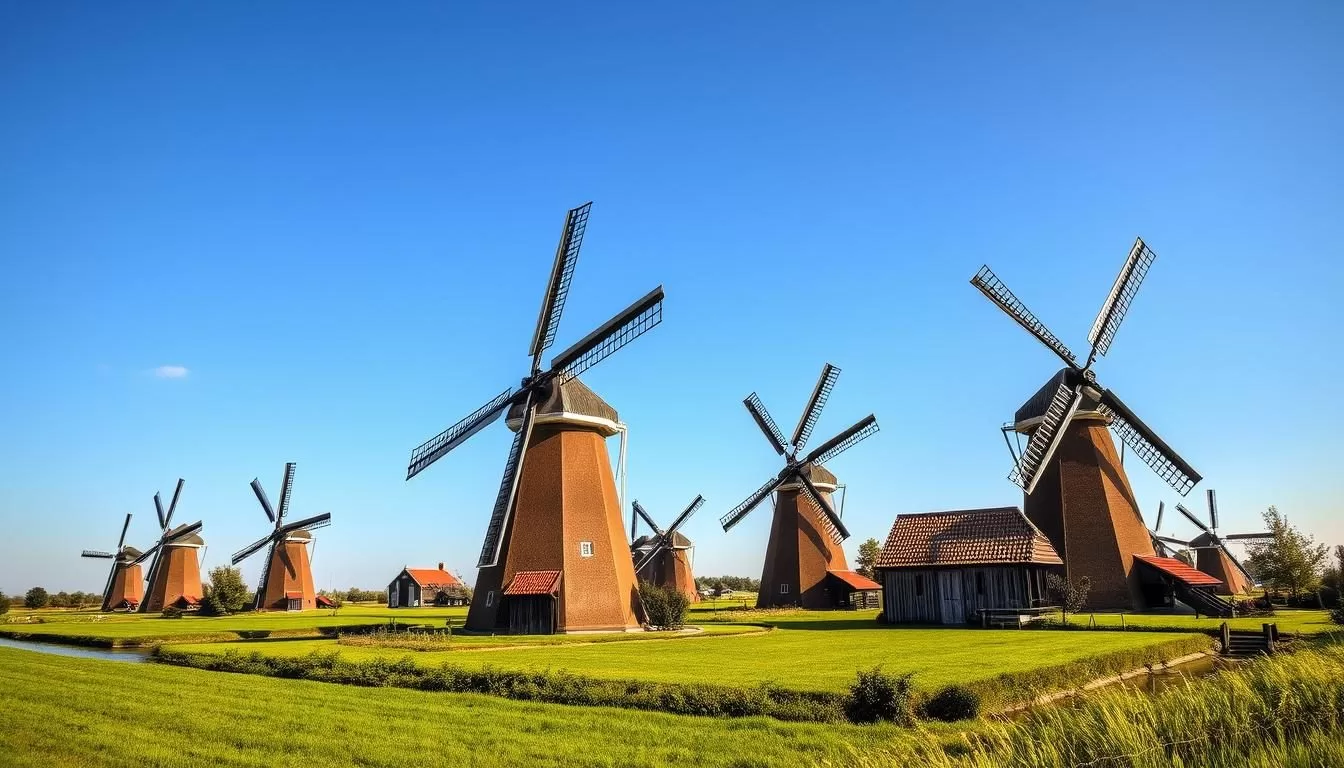
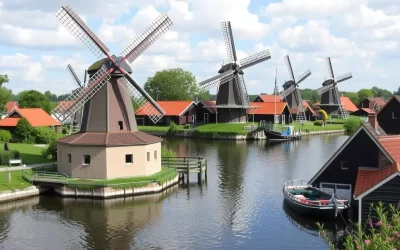
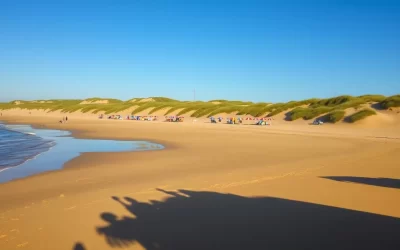
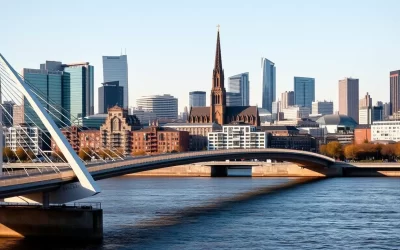
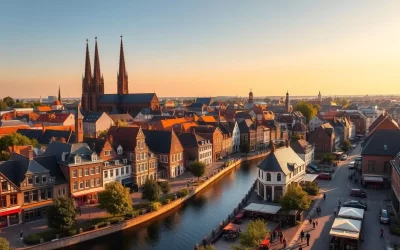
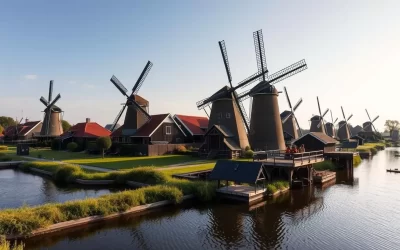

0 Comments